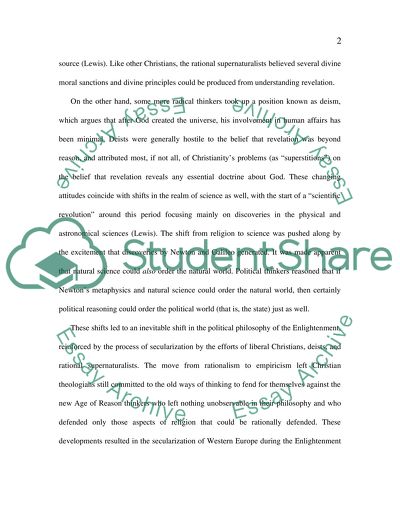Cite this document
(“The Philosophies of Enlightenment Term Paper Example | Topics and Well Written Essays - 2250 words”, n.d.)
The Philosophies of Enlightenment Term Paper Example | Topics and Well Written Essays - 2250 words. Retrieved from https://studentshare.org/philosophy/1558463-four-essaysessay-1-religion-science-and-the-enlightenment-essay-2-paris-burning-essay-3-hard-days-night-essay-4-the-age-of-ideology
The Philosophies of Enlightenment Term Paper Example | Topics and Well Written Essays - 2250 words. Retrieved from https://studentshare.org/philosophy/1558463-four-essaysessay-1-religion-science-and-the-enlightenment-essay-2-paris-burning-essay-3-hard-days-night-essay-4-the-age-of-ideology
(The Philosophies of Enlightenment Term Paper Example | Topics and Well Written Essays - 2250 Words)
The Philosophies of Enlightenment Term Paper Example | Topics and Well Written Essays - 2250 Words. https://studentshare.org/philosophy/1558463-four-essaysessay-1-religion-science-and-the-enlightenment-essay-2-paris-burning-essay-3-hard-days-night-essay-4-the-age-of-ideology.
The Philosophies of Enlightenment Term Paper Example | Topics and Well Written Essays - 2250 Words. https://studentshare.org/philosophy/1558463-four-essaysessay-1-religion-science-and-the-enlightenment-essay-2-paris-burning-essay-3-hard-days-night-essay-4-the-age-of-ideology.
“The Philosophies of Enlightenment Term Paper Example | Topics and Well Written Essays - 2250 Words”, n.d. https://studentshare.org/philosophy/1558463-four-essaysessay-1-religion-science-and-the-enlightenment-essay-2-paris-burning-essay-3-hard-days-night-essay-4-the-age-of-ideology.


